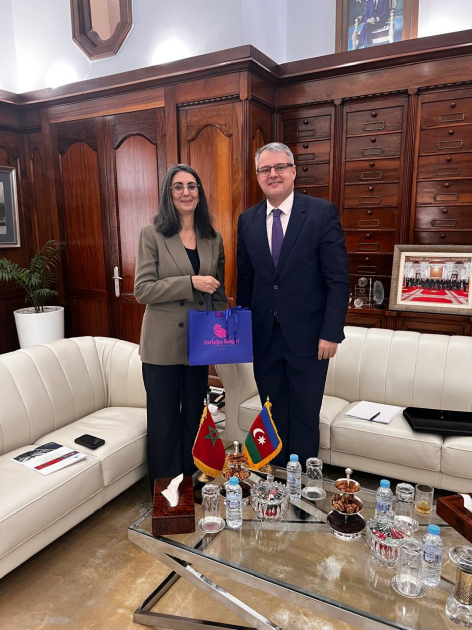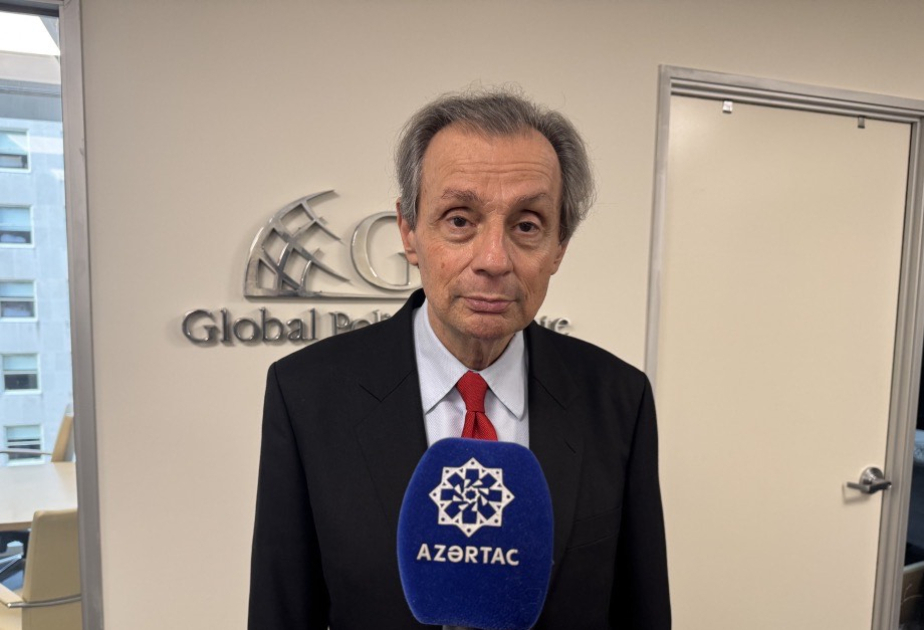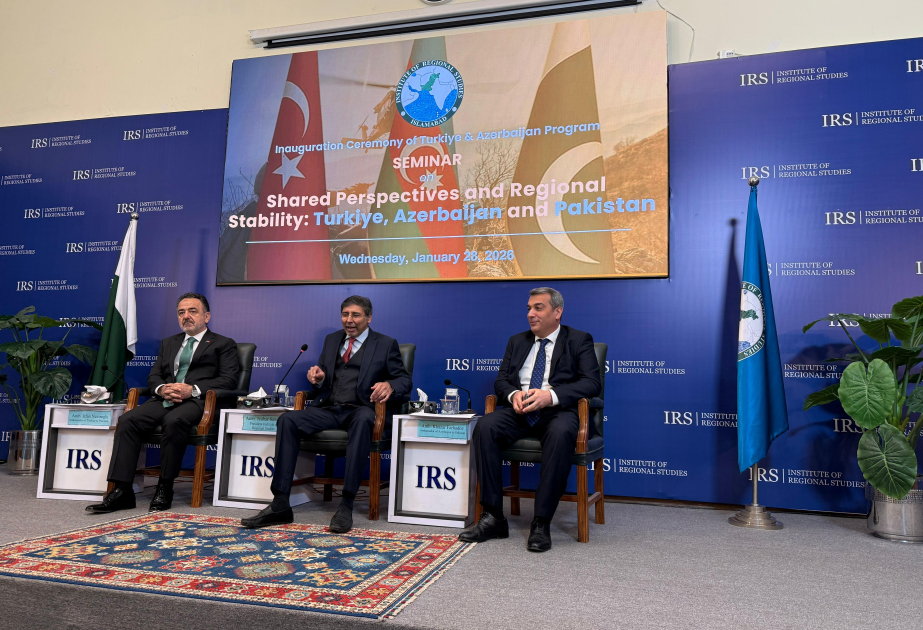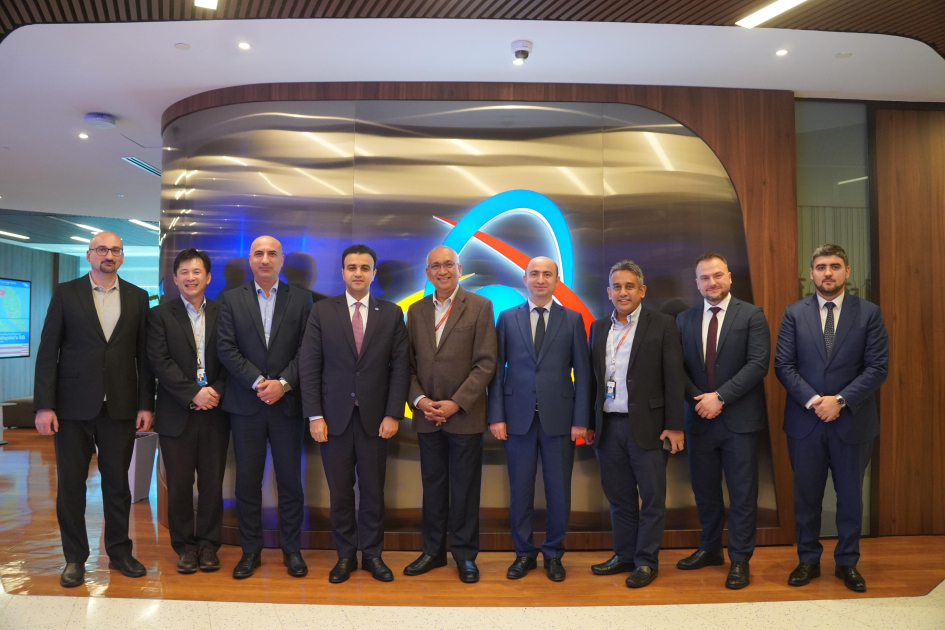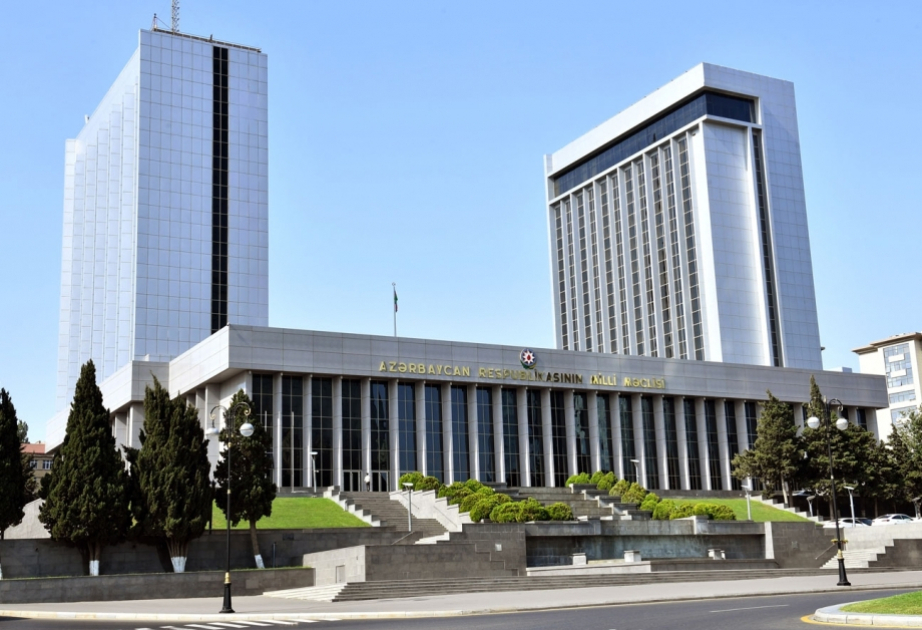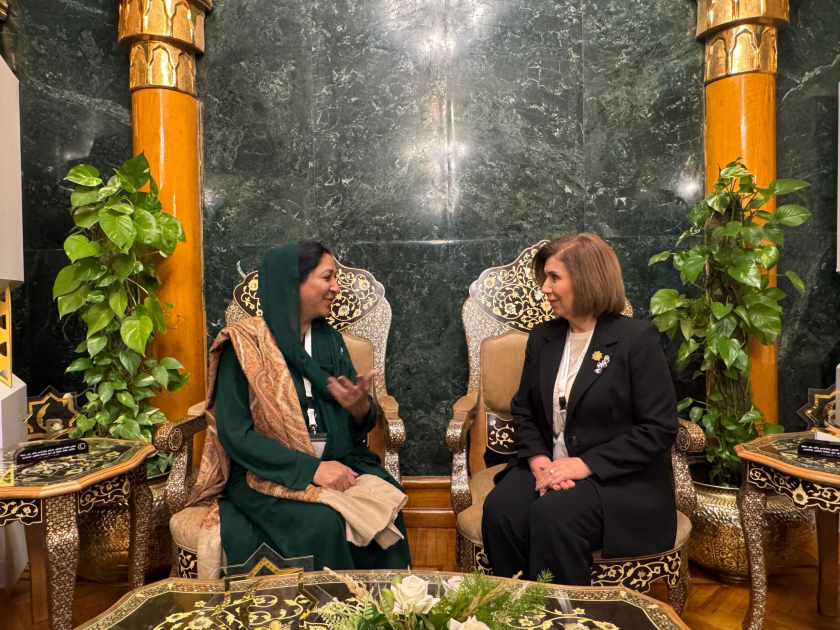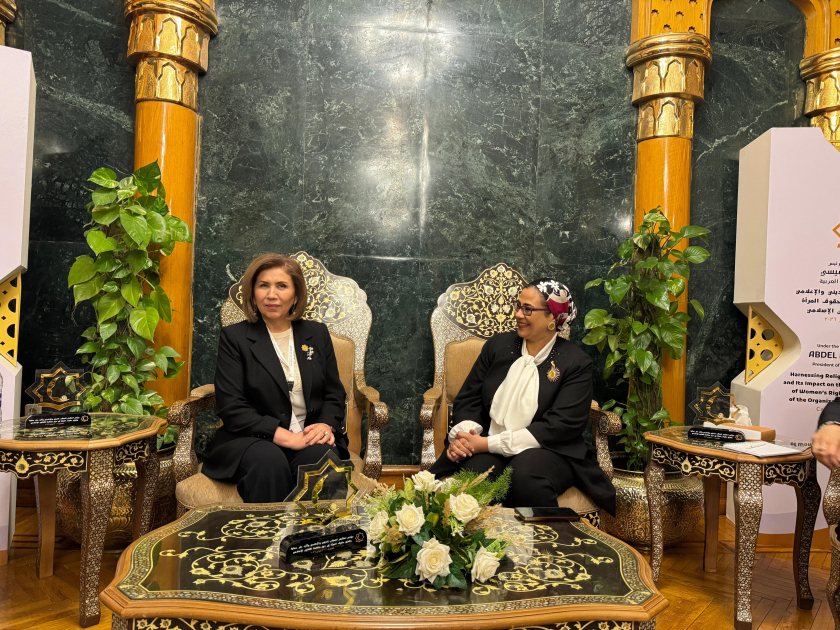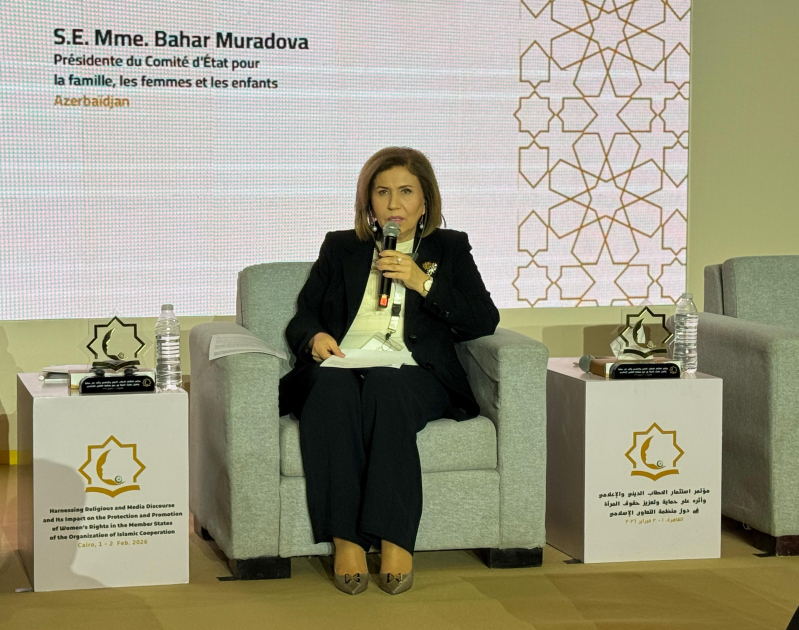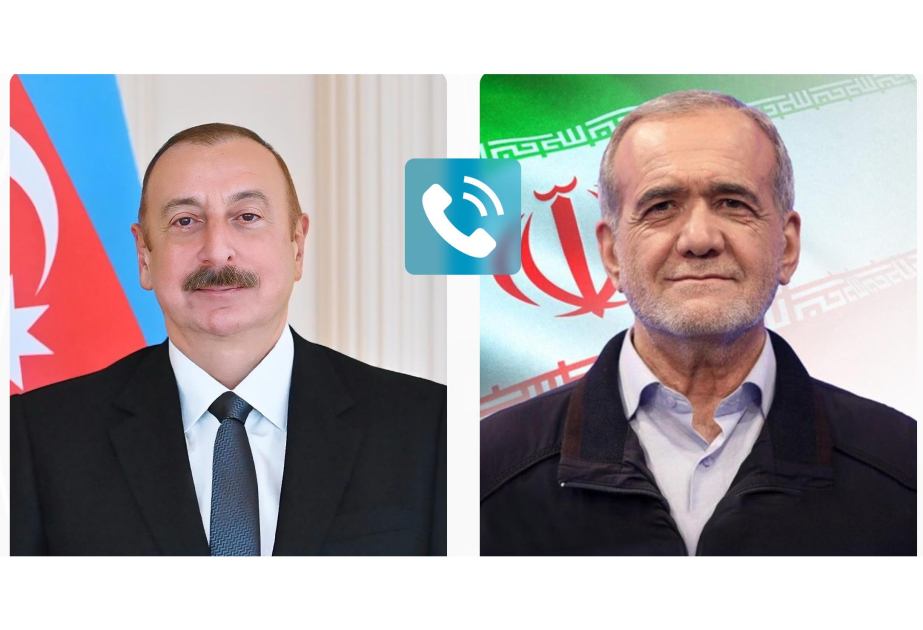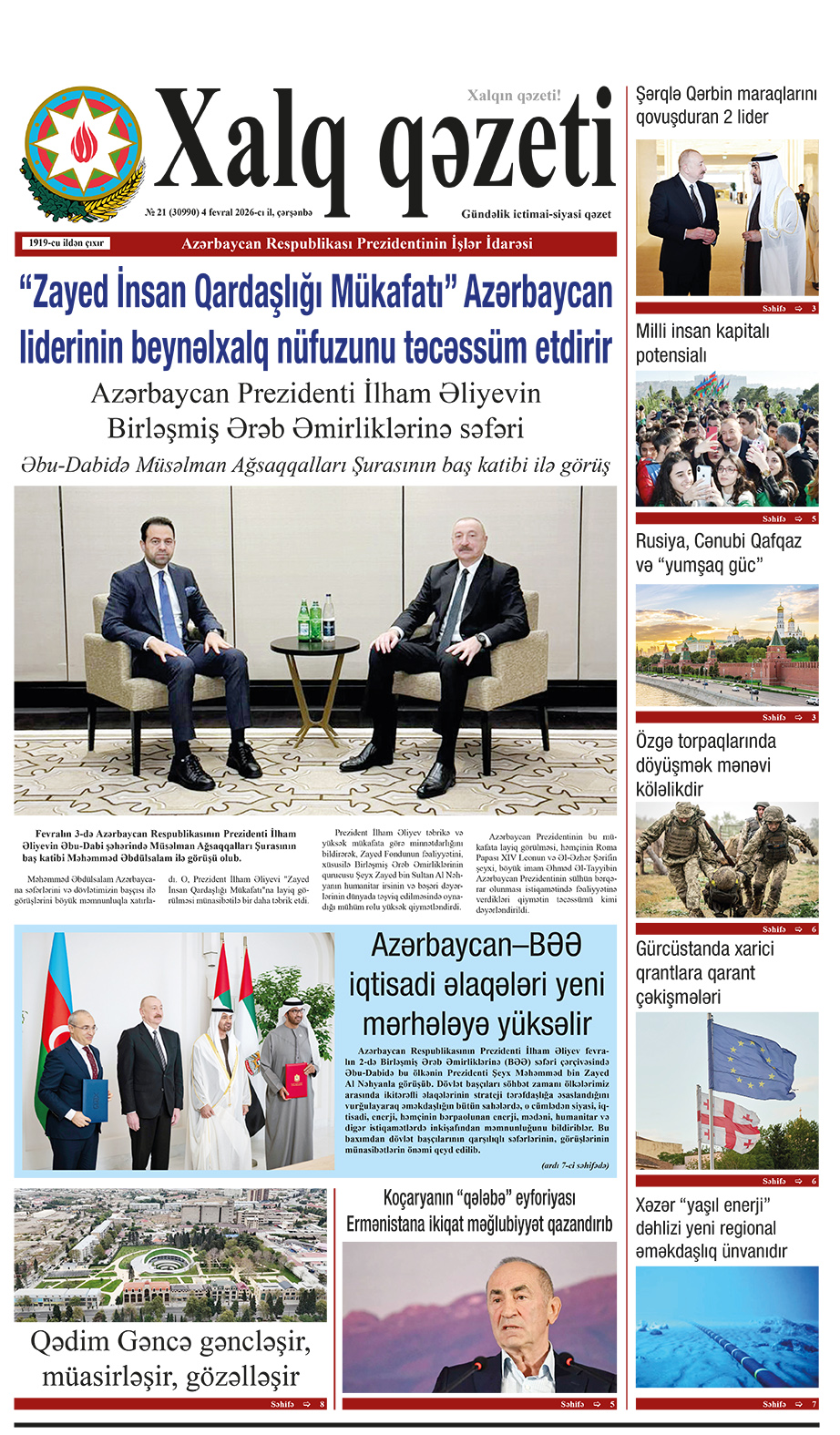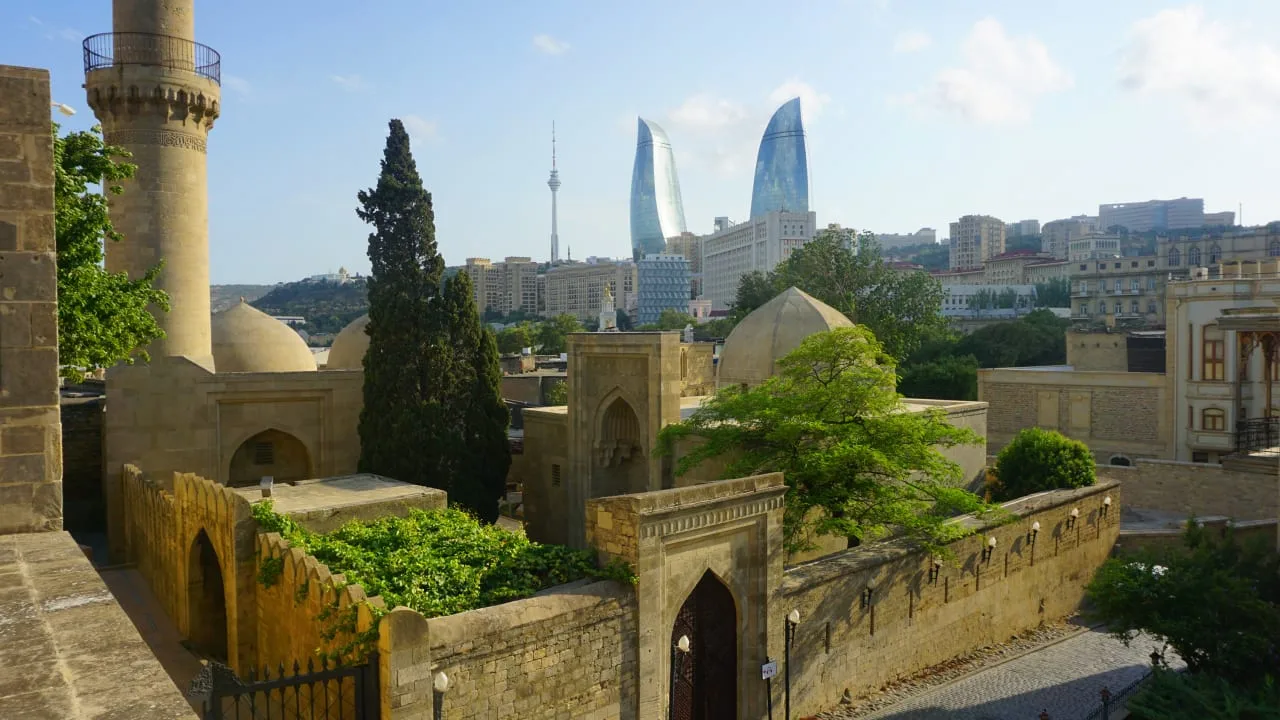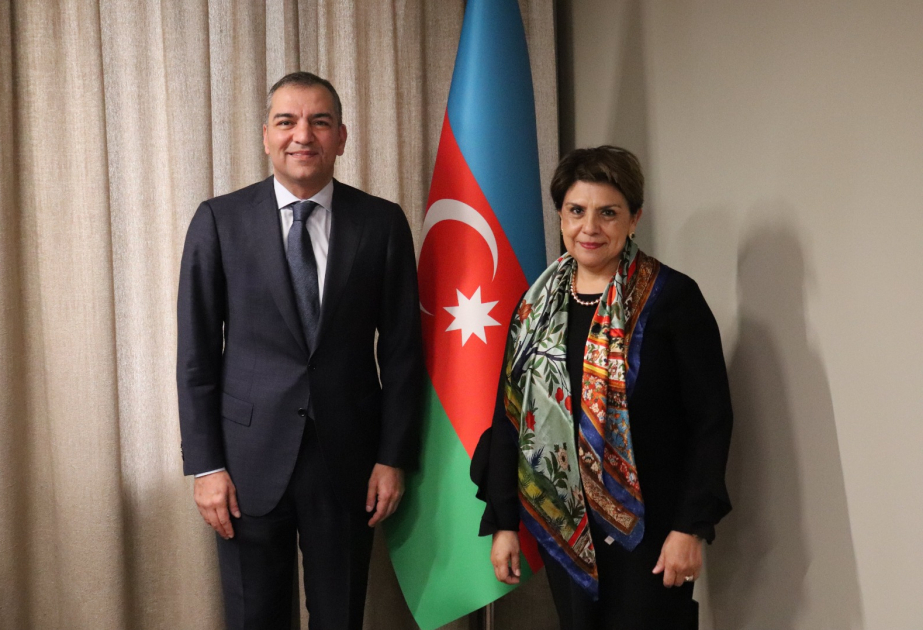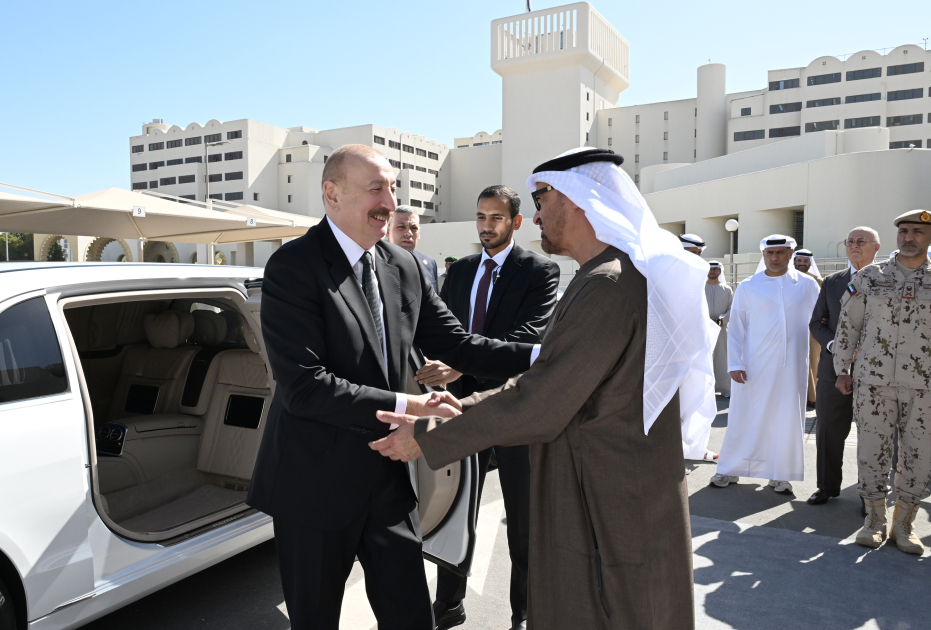President of Azerbaijan Ilham Aliyev spoke on many important points in an interview with local television channels on January 10. With this interview, the head of state gave a report on the year 2023, which we are starting, and on the 20th anniversary of his activity as the President, and in general, he voiced quite comprehensive thoughts reflecting the development dynamics of Azerbaijan since 1993.
The president revived the image of Azerbaijan, which is strong and powerful, moving towards its goal with confidence, determination, patience and restraint. This image emerged in 1993 on the basis of the political line defined by the great leader Heydar Aliyev, and showed resistance and determination for the sake of standing and existing. The course followed by our head of state gave him the immunity of determination and principles. This is the greatest success. The Victory Peak of Success is a celebration of justice as well as a reward for the hardships and deprivations experienced by Azerbaijan.
Yes, the restoration of our sovereignty as a result of local anti-terrorist measures carried out by the Azerbaijani Armed Forces on September 19-20, 2023 is a manifestation of right and justice. It is a base, a reliable foundation for the continuation of the struggle for truth and justice, and at the same time, it is a fertile ground for the future historical stage. It is possible to say with certainty that in 2024, a new historical stage for our state and people will begin, and there is no doubt that a successful start will be given to that stage with the presidential elections to be held on February 7. The current situation is reflected in the explanation given by President Ilham Aliyev in his own style: "The new tasks facing the country today are the tasks of the new era.
We solved the main task, as you mentioned, a few months ago, we fully restored the sovereignty of our country, and the events of September, of course, cannot be taken out of the general context. In other words, the path we followed until September was a purposeful path, a purposeful path, and the right path. From the point of view of the processes taking place in our country, either at the political level, or at the military level, this event was, as it were, the last cry of all our work. Today, we start 2024 as a nation that has fully restored its sovereignty. I believe that the new era of our modern history begins exactly after September 20."
Believing in justice. This idea in the interview of President Ilham Aliyev sounds bright. The great leader Heydar Aliyev found faith among the countless problems faced by the young republic, as if by candlelight, and presented it to the society. In almost every speech, the national leader prepared the ideological ground for our rightful continuation. This great personality instilled a sense of faith in justice without allowing our Karabakh problem to be closed.
Starting from 2003, President Ilham Aliyev, by implementing the same course, strengthened our struggle for justice and justice in the example of Karabakh and other occupied homelands, and defined a kind of road map for faith to reach the moment of celebration with his practical activities. The head of our state, like the great leader Heydar Aliyev, promoted the truths of Karabakh in all the prestigious international forums. Most importantly, he gave faith a supernatural cloak, giving it an armor that combines insurance and protection against the influence of all global political games.
An armor that did not allow the shocks caused by the loss of Karabakh to break the spirit of the people. However, there was such a danger: "Because for 30 years, the belief in justice in the Azerbaijani society was shaken to some extent, and this is not a good situation for any society. This inevitably has a negative impact on people's consciousness, can lead to discouragement, and creates conditions for widespread pessimism in society. That is, these factors are very dangerous for the creation and strengthening of society, a healthy society. Therefore, there must be a reason to believe in justice. We should all know that justice does not come by itself, you have to provide justice. In the modern world, we have already understood this for a long time. If you look at my speeches, perhaps for the last 10-15 years, I have repeatedly said that international law does not work in the world. These mechanisms are activated only for weak countries. Big powers ignore it. For them, it is as if law is not law, international law is not law. In such a case, the countries that demand justice and rightly demand it must provide this justice themselves. Guided by this principle, we have worked actively in recent years and restored justice ourselves. Therefore, it is important, including from this point of view, because faith in justice has been restored. That is, we all saw that, yes, justice has triumphed, we have completed our righteous work and restored justice ourselves."
Yes, we are a nation that restores justice itself. However, we must take into account that at certain stages of the past thirty years, there were attempts to insinuate our waning Karabakh faith as legitimacy, or rather, to impose it. After all, it is for our good sake that some foreign forces are trying to legalize the Armenian occupation. These forces tried to bring false internationalism atmosphere to the Azerbaijani society with various projects. In fact, they took the line of capitulation, killing faith in justice, influencing the harmony of Azerbaijan-Armenia negotiations as a whole. However, they could not achieve their wishes. Because the spirit of intransigence instilled by the great leader Heydar Aliyev formed the leitmotif of President Ilham Aliyev's state policy, including the settlement of Karabakh. This leitmotif is the biggest resistance in our people's search for happiness. As the head of our state emphasized in the resistance, the tactics of facing the minimum pressure to achieve the goals, regardless of all the manipulative suggestions, formed a purposeful movement towards the big goal. In this sense, the opinions expressed by President Ilham Aliyev are so authoritative that they are included in political textbooks: "But the main issue for me was that this is a historical issue, this is a nationwide issue, and here it is not necessary to run in pursuit of some favorable achievement.
We must solve the issue in a fundamental way, we must solve it once and for all, we must fully restore our territorial integrity and sovereignty. There should not be a nest of separatism in our country, and if our generation is not lucky enough to do it, we should raise such a young generation that they will come and do it in 20 years, 30 years, 50 years. That was the main issue. Of course, we are all happy that we saw and experienced these historical days, and this historical Victory will remain forever in the history of the people and state of Azerbaijan.
***
Of course, the road to higher goals is never easy. It was extremely difficult to overcome the difficulties we faced before the Patriotic War of 2020. But it is necessary to emphasize the importance of the post-war situation. President Ilham Aliyev takes a full look at that point in his interview. The statements of our head of state are of exceptional historical importance as fragments of the war of nerves, and without a doubt, with the passage of time, all the details of the psychological war we wage after 2020 will be revealed.
Let's take into account that after a certain period of time has passed through a series of historical processes, the right of citizenship gains the advantage of remaining forever in the memory of history.
From this point of view, the event that happened on April 23 last year is a part of our glorious history. On that date, the "Lachin" border crossing point established on the Hekari River ensured the completion of the Shusha victory experienced on November 8, 2020. The head of our state emphasizes this point and states that the main reason for conducting the operation on September 19-20 in a short period of time was the control of the Azerbaijan-Armenia border in the direction of Lachin. "Because the separatists were already deprived of these opportunities to have weapons," said President Ilham Aliyev, emphasizing the strategic importance of all operations carried out by the Armed Forces of Azerbaijan in the period after the 44-day war, once again shows that the restoration of our state sovereignty is a barely thought-out, logical policy. is the product of holy unity.
Yes, the celebration on September 20 was a bright result of the President's moderate policy trajectory. Of course, we emphasized that this event is primarily an indicator of Azerbaijan's determination to restore state sovereignty. But in great politics, many things are solved by patiently moving towards the goal. The patient approach of Ilham Aliyev's personality is far from the logic of delaying some strategic goal.
During 20 years, Azerbaijani society has seen well that if the head of our state shows a patient attitude to the issue, then the path towards the goal gains greater conceptuality. Because patience polishes the goal, turns it into an ideology, as if soaks it in thoughts. In fact, the calls of our state to the Karabakh Armenians, including the separatists who have turned them into a tool, are a confirmation of this. It can be said with full determination that the biggest component of the psychological war after 2020 is the criterion of self-restraint, which is evident in the behavior of our head of state. This criterion is conceptual, systematic and armed with the nature of immediately identifying any trend accompanied by a violation of the rules of the game. To define is also to neutralize by forcing error. Therefore, President Ilham Aliyev states that holding illegal elections in Karabakh prior to anti-terrorist measures was a violation of the agreement: "As you know, those illegal elections were held on September 9 and it was the second red line. Because the first red line was the sending of a congratulatory letter by Armenian Prime Minister Pashinyan to the separatist regime on September 2. It was both a violation of the red line and, in general, a very controversial step. Because before that, the prime minister of Armenia officially recognized Karabakh as the land of Azerbaijan and declared it many times."
As you can see, there are moments when the cup of patience overflows. In his interview, the President highlights the relevant points with full notes.
The head of our state explains the points that make the anti-terrorist measures inevitable, and at the same time, he dwells on a number of issues, from the attempts of some poles of the international community to maintain a nest of separatism in Karabakh, to the provocative actions carried out by Armenia, caught in the illusion of those attempts, including the mine terrorism that ended the lives of hundreds of our people.
All this had to be given a decent answer and it was given in just 23 hours. But the head of our state announced that the target was reached not in 23 hours, but earlier, which is a factor that needs to be considered as a subject of future studies related to local anti-terrorist measures. This aspect emphasized by the President is extremely important: "I told both the Armenian leadership and international actors that in a minute I will press a button and carry out this operation, and you will not be able to do anything. I told them openly. The course of these events showed that - I think this should be a lesson not only for Armenia, but also for those who stand behind Armenia - it is impossible to treat us with threatening language or arrogance."
***
One of the main points that President Ilham Aliyev focused on regarding Azerbaijan-Armenia relations is France's uncompromising position towards our country. Of course, this position has a name - strict pro-Armenianism. It should be noted that pro-Armenianism has recently been the unequivocal point of departure for the contradictions between Paris and Baku. In the background of all this, the question arises again: what does France want from Azerbaijan?
In his answer to this question, the head of state made an excursion into the history of mutual relations between the two countries and listed enough positive aspects. The conclusion to be drawn from what he said is that all the positives were lost after the 44-day war. More precisely, after the victory of our country in the war.
Thus, the French Senate recognized the separatist regime as an independent state, Paris repeatedly tried to bring the Karabakh issue to the UN Security Council and present Baku as an invader. Of course, all this did not help. "I think there were at least 5 such attempts, and all of them ended in complete failure, because the majority of countries supported us, and they could not gather the necessary number of states to pass this resolution. It was, of course, a very strong political blow for them, because we beat them on their turf, so to speak. I also think that the fact that the European Union did not join them was a big blow, although it turned out that the head of the European Union's diplomacy, unfortunately, was among those who supported France's policy against Azerbaijan. However, in general, the countries of the European Union could not agree on a single position in relation to Azerbaijan, while France insisted on sanctions and other steps. These theses have already been voiced, and they are, so to speak, suspended in the air, and have not been translated into action," it is obvious that the head of our state is reviving the pro-Armenian Paris's studies of political infamy. Let's take into account that the field of French fiasco is not limited to the UN. At the same time, there is also the European Union and the European Parliament.
But Azerbaijan is not satisfied with protecting itself from France, it is also counter-attacking against it, so to speak. Mr. Ilham Aliyev emphasizes: "Of course, we will continue on our way. Our chairmanship in the Non-Aligned Movement ends, but the Baku Initiative Group will live on, we will support the exposure of French neocolonialism and the process of liberating French colonies from French oppression."
***
The next point that the Azerbaijani leader focused on in his interview with local television channels was the issue of opening communications, which is an important element of the peace process with Armenia. As it is known, the official Iravan is promoting the "Crossroads of the World" project against the idea of "Zangezur Corridor" after the 44-day war of Azerbaijan, and this project stems from Armenia's evasion of its obligations as a war loser. And the commitment is concrete - there should be an easy road connecting other territories of Azerbaijan with Nakhchivan.
Towards the end of last year, the head of our state said that no border and customs control should be established on this road. That is, the road from Azerbaijan to Azerbaijan should be based on territorial logic. Yerevan and its patrons oppose it with all their might, and the idea of "Crossroads of the World" is attracting attention in the current sense. President Ilham Aliyev assures that such an initiative will not be realized without the will of Azerbaijan. "I must also state that the word "Zangezur Corridor" irritates them a lot, and when I say that the corridor does not question the sovereignty of any country, there is a North-South corridor that passes through the territory of Azerbaijan.
This does not mean that our sovereignty is questioned here. There is an East-West corridor - but for some reason, the attitude to this word corridor is a little different in Armenia. That's why it was called an Armenian road crossing, or a crossroad, and after that it was called a "peaceful road crossing". But in fact, this is nothing but a PR campaign," said the head of state, giving a decent answer to the forces that want to describe our country as an invader in the process of opening regional communications. Referring to the French factor once again, he says that the rumors spread by Paris are baseless, that Azerbaijan has no plan to attack the territory of Armenia. As for Nakhchivan, it already has a formula for agreement with Iran, and this formula is a case of continuity of isolation that has lasted for nearly thirty years for Yerevan. That is, the leader of our country warns of the fate Armenia will face if it does not fulfill its obligations. If one address of this warning is France, the other target is the United States.
It should be noted that during the Karabakh hearings held in the House of Representatives of the US Congress towards the end of last year, there was a lot of opposition against the passage of the road to Nakhchivan through the territory of Iran. The issue was posed in a manner of utmost importance to the United States.
It was concluded that if the road to Nakhchivan passes through the Islamic Republic, not through the territory of Armenia without border control, Washington will behave in a completely different way towards Baku. The author of this threatening statement was James O'Brien, assistant to the head of the US State Department. However, the goal was far from blocking the Iranian route to Nakhchivan. After all, they know well in the West that the road to Nakhchivan passed through Iran even during the occupation years. I wonder why the issue was not treated as it is now?
In the West, they know very well that the road in question is a serious problem for Yerevan. It is both breath-taking and a high dividend in terms of continuation of Armenian adventurism. Of course, Azerbaijan cannot agree with this way of setting the issue. Mr. Ilham Aliyev emphasized this last year, and now he expressed his principled position once again by revealing the details in his interview. "Today, the connection between the main part of Azerbaijan and Nakhchivan is still carried out through the territory of Iran. Why is it not objected to, only the Mehri part is objected to? Armenian-Iranian trade is growing and flourishing day by day. Iran has opened a consulate in Western Zangezur. Why does this, as they say, raise no questions? That is, such illogical and nonsensical statements do not bring honor to anyone, and when they say "we will not allow it", - I have already said it - what does America mean, how will it not allow it? Will the future build a barrier in Zangezur, or place an army in Zangilan, or in the territory of Iran? How will not allow? This is our sovereign business.
Recently, the bridge over Astarachay was opened with Iran. Why? Because the volume of cargo transportation in the North-South corridor has doubled and currently the terminal in Astara cannot handle all that cargo. We have opened a second crossing with Russia in Khanoba, and now there are two crossings on the Russian-Azerbaijani border, there was one. There are also two passages with Iran. In other words, this is our sovereign business," said President Ilham Aliyev, advising Armenia not to engage in manipulations. This once again shows that the names "Crossroads of the World", "Crossroads of Peace" and others are nothing more than Yerevan's attempt to distort the real peace agenda with Azerbaijan, and such approaches will not yield any results. The President assures this: "People and goods should pass from Azerbaijan to Azerbaijan, as I said, without any checks. Otherwise, Armenia will remain an eternal deadlock, and if the route I mentioned is not opened, we are not going to open our border with Armenia anywhere else. In other words, they will suffer more harm than good."
As for the direct peace agenda, according to the words of our head of state, there is no need to invent a bicycle. In other words, the Karabakh issue is closed. This means that there is no place for Armenian adventurism in the peace agenda. There are concrete principles, and the state of Azerbaijan emphasizes that those principles should be adapted to international law.
On the other hand, the basic conditions for a peace treaty are already ready. However, there is one important point that Mr. Ilham Aliyev brought to attention: "This is a peace agreement to be signed between two sovereign states. We don't need any guarantors there, and if it's going to be signed in a bilateral format, it should be signed. If someone wants to help, we don't mind that either. However, this help should be non-compulsory. Because some of them are now competing for negotiations to be held in this country, in that country, or in a third country. It's a bit like a geopolitical rivalry. I wouldn't want that. I would not want Armenia-Azerbaijani relations to become a geopolitical issue. This is an issue between our two countries, we have to solve it ourselves. If we agree, a peace treaty will be signed. If we do not reach an agreement, then either the negotiations will continue or the negotiations will be stopped. Both options are possible."
In general, two important aspects that the President of Azerbaijan paid attention to in terms of the peace agenda with Armenia in his interview are worth noting. The first of these is the delimitation and demarcation of Azerbaijan-Armenia borders, and the second point is the return of our occupied villages. Of course, both issues are of fundamental importance. However, if the border delimitation process can be realized even after the peace agreement, the return of our occupied villages should not be delayed. In any case, the conclusion from the thoughts of our head of state gives reason to say this.
Yes, the President of Azerbaijan is persistent and this character suggests drawing conclusions from the bitter lessons of history. Let's take into account that there are extremely sensitive points touched by the head of our state. Those moments are an element of the peace process with Armenia. For example, one of the principles put forward by the other side in terms of clarifying Azerbaijan-Armenia borders is that the delimitation process should be carried out on the basis of maps from the 70s of the last century. I wonder why? Mr. Ilham Aliyev explains the reason in detail in his interview. The President emphasizes that the transfer of our lands to Armenia was a gradual process. The first stage is the compromise of Yerevan in 1918: "That is, on May 28, the republic was declared, and on May 29, Yerevan was handed over to Armenia. His explanation also does not fit into any logic, that by giving this, Armenia gives up its territorial claims against Azerbaijan. Did he shake hands? No, it got even worse. The protest of the representatives from Yerevan - the representatives represented in the Azerbaijan Democratic Republic at that time - was not taken into account. That is, it was a great historical crime and it was a beginning."
As it can be seen, the position of President Ilham Aliyev is uncompromising. Other ideas in the interview of our head of state are of exceptional importance in this regard, and "Why does Armenia use maps from the 1970s as a basis?" fully reflects the answer to the question.
The point is that the country's leadership is trying to erase the historical mark. Therefore, Prime Minister Nikol Pashinyan did not say for nothing that his goal is to get a birth certificate for Armenia, as they say. And therefore, it should not be considered a coincidence that N. Pashinyan was guided by the Alma-Ata Declaration of 1991. The declaration is based on the recognition of each other's territorial integrity by the republics included in the former USSR. But there is an interesting nuance here - if the Declaration of Alma-Ata defines the sovereignty trajectory of separation from the USSR, then why not focus on the factor of existing territories when joining the Soviet Union? Isn't that true justice? Why should Azerbaijan join the USSR with a large territory and leave the Union with a small territory? Or, on the contrary, for what reason should Armenia gain territory? The approach of President Ilham Aliyev is also relevant: "That is why they wanted to use the maps of the 1970s as a basis. When I asked, well, why the 1970s? Tell me, explain to me, what are the methodological and political bases for this? There is no. If we refer to its political foundations, then as a point of reference we should take either the period of the establishment of the Azerbaijan Democratic Republic or the period of Sovietization. It is a political methodology. If we prefer the chronological methodology, then let's see what the maps were at the beginning of the 20th century, let's build our work on these maps.
That is, you leave out the 1960s, 1950s, 1940s, and you want to refer to the 1970s. Precisely because our historical lands were already given to them. That's why we strongly objected to it and continue to do so. "Unfortunately, it is not only Armenia that wants to use the map of the 1970s as a basis, but it is its "Armenia Plus" group, and we can never agree to this."
So, what can Azerbaijan agree to? President Ilham Aliyev clarified this issue in his interview. Saying that the current borders are conditional, the leader of our country states that political methodology or chronology should be taken as a basis in the delimitation process. Action should not be based on some map, border commissions of Azerbaijan and Armenia should activate their work, expert groups should be formed. Those groups should define the border together. Therefore, in the present case, the opinions voiced by the Yerevan circles, that Azerbaijan has encroached on the sovereign territory of Armenia, should not be taken into account. By the way, the head of our state touched on this point very confidently in his interview: "Neither from the positions in May 2021, nor from the positions in September 2022, we are not taking a step back, because that border must be defined. However, our location, which is now disputed by Armenia, does not include any settlement.
The positions and hills where we stand have never been inhabited. Today, Armenia continues to occupy our villages, and this is intolerable. I want to note again and I think that this issue will be clarified during the meeting of the commissions at the end of this month."
Yes, in his first interview in 2024, President Ilham Aliyev instilled factual certainty, so to speak. It is possible to evaluate the statements of the head of state as a Victory Manifesto of faith in justice. It can be definitely said that the target of certainty in the victory manifesto of the leader of our country is the people of Azerbaijan. That is, the leader believes in the people, and the people believe in their leader. As a result, 2023 was a year of great success for our country. Our people are sure that 2024 will be written in our glorious history as a bright year. Because there is a world-class personality like President Ilham Aliyev, a great guarantor of success and success.
EVEZ JAHANGIROGLU
XQ


.jpg)
